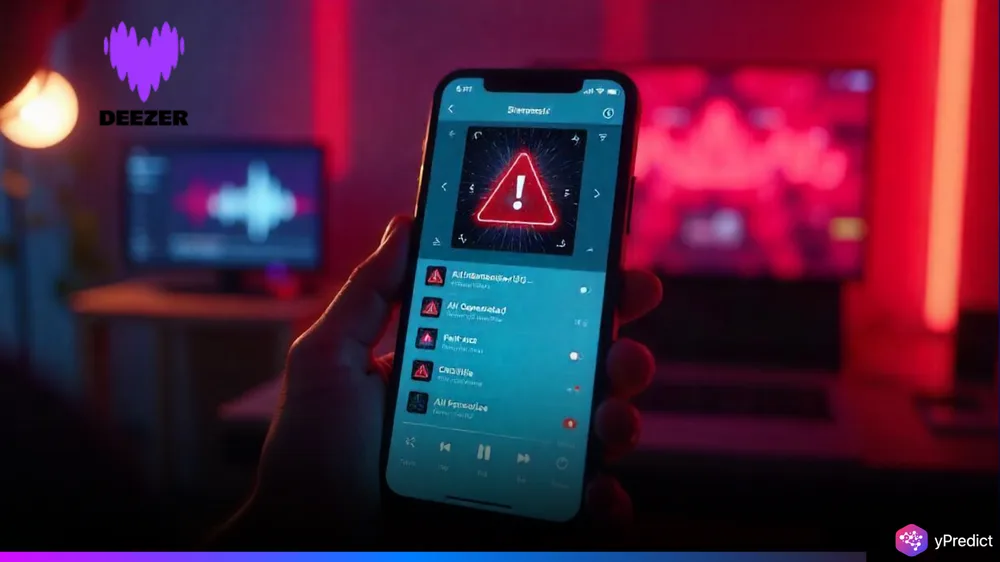
Music streaming service Deezer has announced a major update to its platform in response to the rising flood of AI-generated music and royalty manipulation. The Paris-based company will now flag albums containing AI-created tracks, a move aimed at increasing transparency and curbing streaming fraud.
As part of this update, Deezer will show an “AI-generated content” label on screen and alert listeners when albums include songs made with generative AI tools. The initiative aims to safeguard artists’ rights in a rapidly evolving digital landscape where copyright laws are being challenged by the rapid advancement of artificial intelligence.
AI-Generated Music Surges on Deezer
Deezer revealed that approximately 20,000 songs uploaded daily, or 18% of new music, are now fully AI-generated. That’s nearly double the volume from three months ago, when the figure stood at 10%.
Despite this influx, AI music still accounts for just 0.5% of total streams on the platform. However, Deezer CEO Alexis Lanternier warned that much of this content is fraudulent, designed primarily to manipulate royalties through bot farms that inflate play counts.
Fighting Bots and Fraud with AI Detection Tools
Deezer is leveraging the same AI music generators used to create songs to detect them. By analyzing subtle and often complex patterns in AI-created music, Deezer’s system can recognize machine-generated tracks. However, since these patterns are constantly evolving, Lanternier notes that the detection tools must be updated daily. AI songs found to be involved in stream manipulation will be disqualified from royalty payouts, in a firm stance against exploitation.
Streaming Fraud is Lucrative and Illegal
The scale of AI-powered music fraud is not just a technical problem—it’s also criminal. Deezer cited a U.S. federal case last year where a man was charged with wire fraud conspiracy after allegedly uploading hundreds of thousands of AI songs and streaming them billions of times via bots. He is believed to have earned over $10 million from the scheme.
Protecting What Matters While Moving Forward
Deezer’s move arrives as record labels sue popular AI music platforms, including Suno and Udio, for copyright infringement. The lawsuits claim these platforms unlawfully trained models on the works of major artists ranging from Chuck Berry to Mariah Carey.
In Europe, German rights organization GEMA has filed a case in Munich, alleging Suno’s outputs are “confusingly similar” to songs like “Forever Young” by Alphaville and “Mambo No. 5” by Lou Bega.
Meanwhile, industry insiders report that labels are negotiating licensing deals with Suno and Udio to seek compensation and legal clarity.
Balancing Innovation with Responsibility
While Lanternier acknowledges the creative potential of AI, he stresses that its unchecked use raises serious ethical and legal concerns.
“Using AI is fine when there’s an artist behind it. But the issue arises when anyone or a bot can flood the system for profit,” he explained.
Deezer’s AI-labeling initiative is part of a broader industry shift to safeguard real artists, promote transparency, and ensure streaming services aren’t overrun by inauthentic content.
Conclusion
Deezer, a small entrant in the massive music industry cataclysm created by generative AI, is taking a step ahead of the larger players, such as Spotify, Apple Music, and Amazon, by introducing AI song detection and song labeling. As a minor player, it may not have the same clout to take the lead in the market. Yet, Deezer is breaking ground for other future champions to potentially follow a transparent approach in eliminating misinformation, protecting artists, and promoting responsible AI practices.






